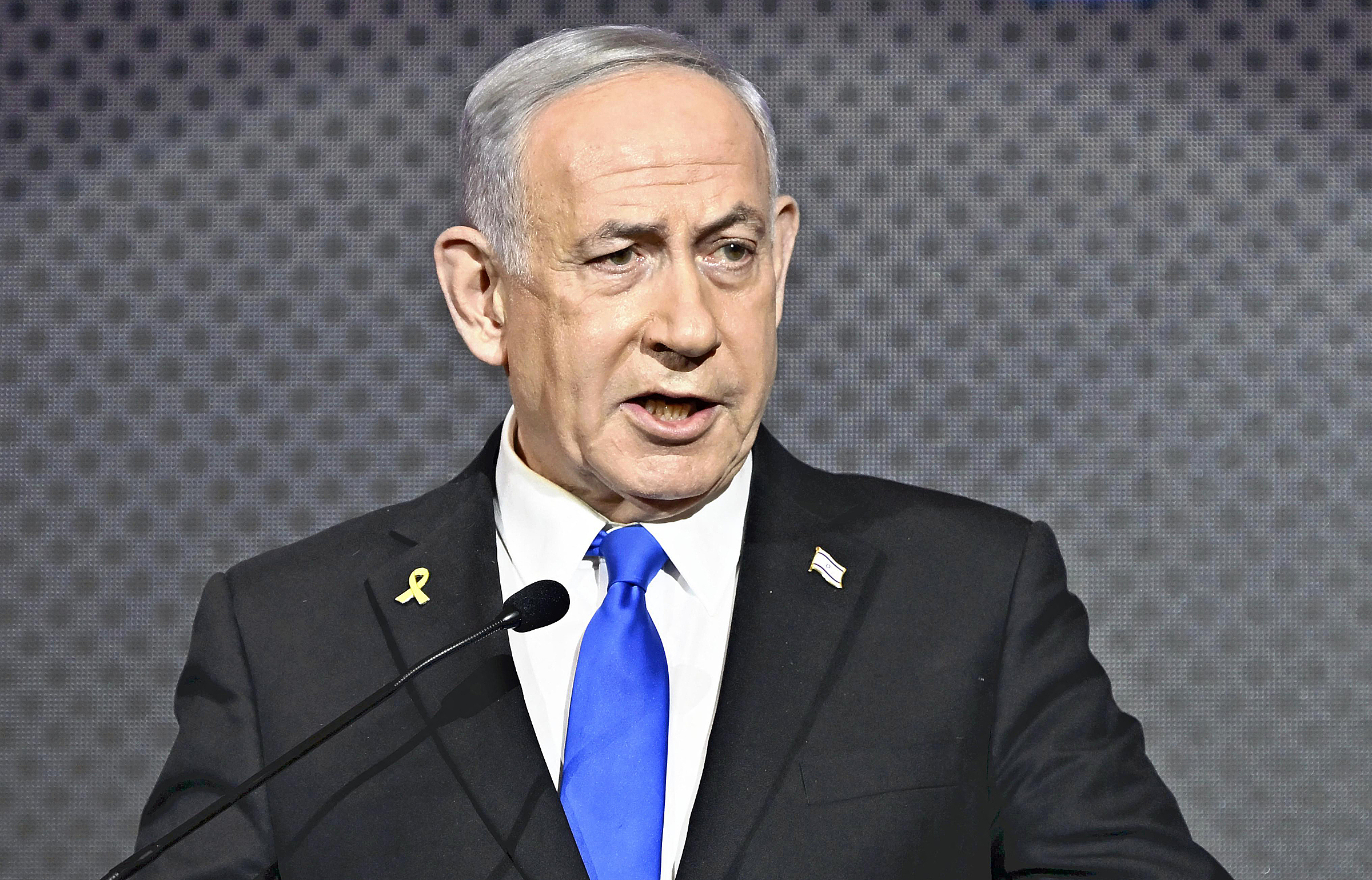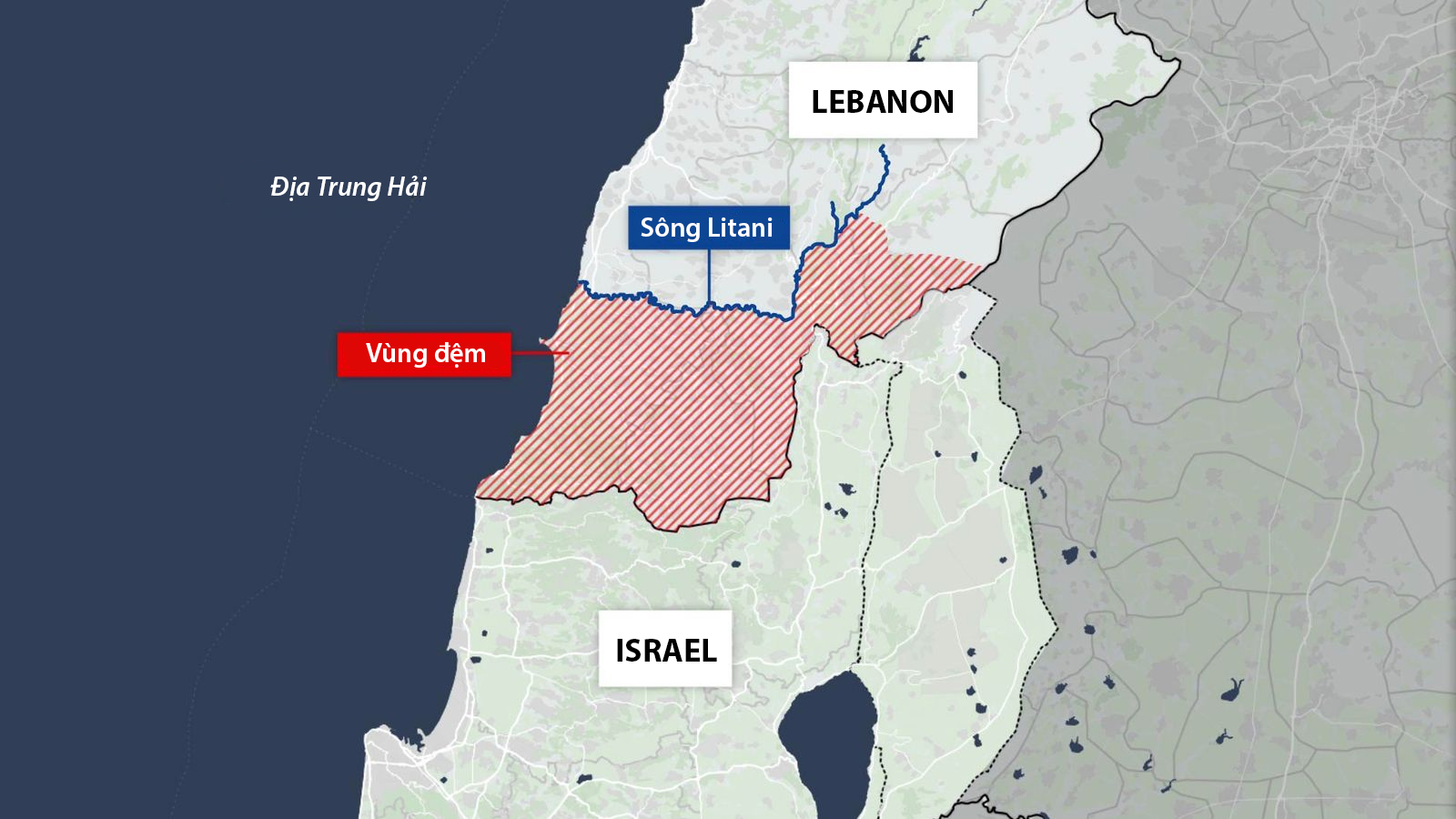The office of Israeli Prime Minister Benjamin Netanyahu announced today that if Lebanon takes the necessary steps to disarm Hezbollah, Israel may respond with corresponding measures. These could include a phased reduction of Israel's military presence in southern Lebanon, coordinated with a US-led security mechanism.
"Israel is ready to support Lebanon in its efforts to disarm Hezbollah and work together towards a more secure and stable future for both countries," the Prime Minister's office stated.
The Prime Minister's office also commended Lebanese President Joseph Aoun and Prime Minister Nawaf Salam on their "momentous decision." They called the move "a significant opportunity for Lebanon to regain its sovereignty and restore the authority of its state institutions, military, and government, freeing itself from the influence of non-state actors."
Neither the Lebanese government nor Hezbollah has commented on this information.
 |
Israeli Prime Minister Benjamin Netanyahu speaks at an event in Jerusalem, 13/8. Photo: AFP |
Israeli Prime Minister Benjamin Netanyahu speaks at an event in Jerusalem, 13/8. Photo: AFP
Since the November 2024 ceasefire between Israel and Hezbollah, brokered by the US, Hezbollah has declared it will not discuss disarmament unless Israel withdraws from five hills it controls within Lebanese territory and ceases its near-daily airstrikes.
Lebanese Prime Minister Salam announced on 5/8 that the government had tasked the Ministry of Defense with developing a plan to "confine all weapons to the army and state security forces, to be completed before the end of this year." The Lebanese army is expected to present the implementation plan at the end of the month for discussion and approval.
This step aims to implement the ceasefire agreement with Israel from November 2024, amidst increasing pressure from the US on the Lebanese government.
Hezbollah leader Naim Qassem affirmed that Hezbollah has no intention of relinquishing its weapons caches. He warned that Lebanon could descend into civil war and "cease to exist" if the government decides to confront them.
He also condemned the government's disarmament decision as a "plan to disarm the resistance," referring to the anti-Israel movement. He expressed concern that this disarmament plan would pave the way for crackdowns on Hezbollah members.
"The government will bear full responsibility for any internal explosions or destruction in Lebanon," the Hezbollah leader said.
 |
Location of the Litani River and the buffer zone in southern Lebanon. Graphic: Sky News |
Location of the Litani River and the buffer zone in southern Lebanon. Graphic: Sky News
Since the cessation of hostilities, Hezbollah has withdrawn most of its members and weapons from the border area with Israel, south of the Litani River. The ceasefire agreement does not specify how to handle Hezbollah's weapons and military facilities north of the Litani River. It only states that the Lebanese government should dismantle unauthorized facilities, starting with the area south of the river.
Hezbollah insists the agreement only covers the area south of the Litani River, while Israel and the US maintain that it requires the group to disarm throughout Lebanon.
Huyen Le (According to AP, Reuters, Times of Israel)












